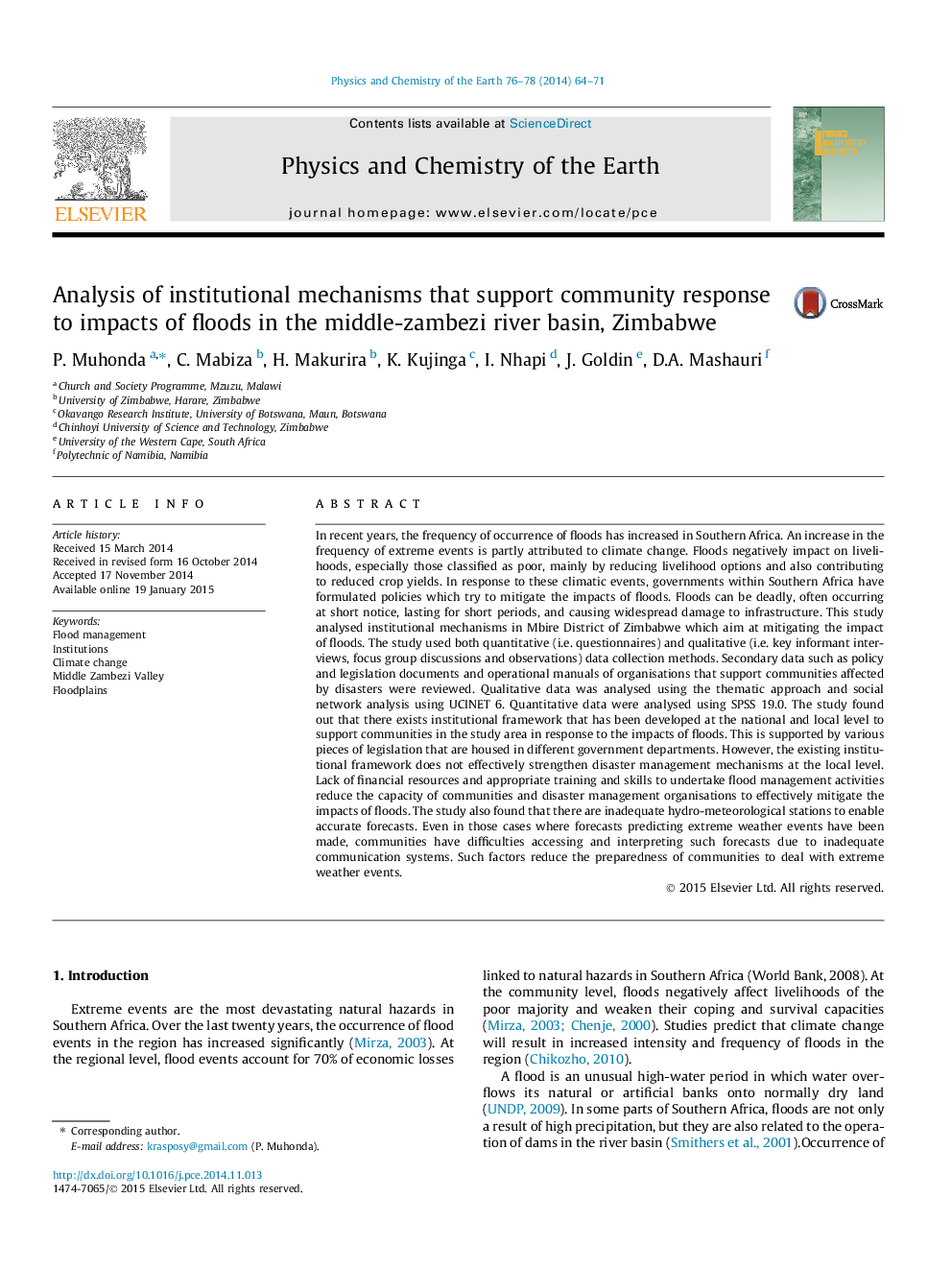| کد مقاله | کد نشریه | سال انتشار | مقاله انگلیسی | نسخه تمام متن |
|---|---|---|---|---|
| 4720963 | 1639353 | 2014 | 8 صفحه PDF | دانلود رایگان |
• Drought and flood events in Kanyemba ward.
• Middle Zambezi basin.
• Institutional frameworks for floods and drought management in Zimbabwe.
• Floods and drought management measures.
• Traditional practices for mitigating impacts of floods and droughts.
In recent years, the frequency of occurrence of floods has increased in Southern Africa. An increase in the frequency of extreme events is partly attributed to climate change. Floods negatively impact on livelihoods, especially those classified as poor, mainly by reducing livelihood options and also contributing to reduced crop yields. In response to these climatic events, governments within Southern Africa have formulated policies which try to mitigate the impacts of floods. Floods can be deadly, often occurring at short notice, lasting for short periods, and causing widespread damage to infrastructure. This study analysed institutional mechanisms in Mbire District of Zimbabwe which aim at mitigating the impact of floods. The study used both quantitative (i.e. questionnaires) and qualitative (i.e. key informant interviews, focus group discussions and observations) data collection methods. Secondary data such as policy and legislation documents and operational manuals of organisations that support communities affected by disasters were reviewed. Qualitative data was analysed using the thematic approach and social network analysis using UCINET 6. Quantitative data were analysed using SPSS 19.0. The study found out that there exists institutional framework that has been developed at the national and local level to support communities in the study area in response to the impacts of floods. This is supported by various pieces of legislation that are housed in different government departments. However, the existing institutional framework does not effectively strengthen disaster management mechanisms at the local level. Lack of financial resources and appropriate training and skills to undertake flood management activities reduce the capacity of communities and disaster management organisations to effectively mitigate the impacts of floods. The study also found that there are inadequate hydro-meteorological stations to enable accurate forecasts. Even in those cases where forecasts predicting extreme weather events have been made, communities have difficulties accessing and interpreting such forecasts due to inadequate communication systems. Such factors reduce the preparedness of communities to deal with extreme weather events.
Journal: Physics and Chemistry of the Earth, Parts A/B/C - Volumes 76–78, 2014, Pages 64–71
